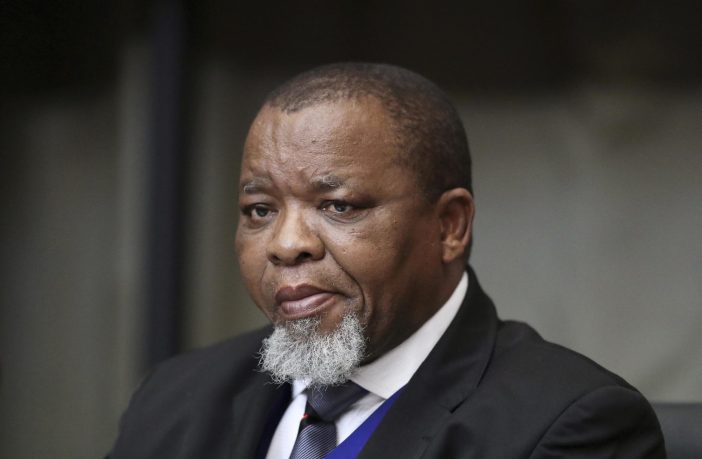
The latest notice on the IPP Projects website. Image credit: DMRE
- The original deadline of 31st July 2021 was set for independent power producers (IPP’s) appointed as preferred bidders, to reach financial close for their projects in South Africa’s Risk Mitigation Independent Power Producer Procurement Programme (RMIPPPP).
- It was extended by two months to 30th September and then extended again to 31st March 2022.
- The latest notice on the IPP Projects website communicates an extension to end of April – “a date of which will be confirmed in due course’.
In March 2021 eight preferred bidders totalling 1845MW and a further 3 eligible bids totalling 150MW were announced.
The eleven projects awarded preferred bidder status outcome included three gas powership projects totalling 1220MW submitted by Turkish owned independent power producer Karpowership SA. The other eight power generation projects are made up of hybrid systems which include solar PV, wind and energy storage technology. The prices for the proposed solutions range from R1 468 per MWh to R1 885 per MWh. The weighted average price is R1 575 per MWh.
The eleven projects are projected to inject a total private sector investment amount of R45 billion to the South African economy, with an average local content of 50% during the construction period. South African entity participation from these projects is 51% with black ownership at 41%.
Around 3 800 job opportunities will be created during the 18 months construction period and a further 13 500 during the 20-year Power Purchase Agreement (PPA) term.
The objective of the RMIPPPP was to fill the current short-term supply gap, alleviate the current electricity supply constraints and reduce the extensive utilisation of diesel-based peaking electrical generators. The Determination for the RMIPPPP was gazetted on the 7th of July 2020.
Related news: The Karpowership SA bid has been riddled with controversy plus allegations of tender rigging
Karpowership environmental impact assessment (EIA) controversy
South Africa’s Department of Forestry, Fisheries and the Environment refused all three of Karpowership’s environmental impact assessment applications citing incomplete submissions. This prompted the Green Scorpions to recommend criminal charges for earlier attempts by Karpowership SA to bypass environmental regulations. Read more
Local content
The local content designated by the Department of Trade and Industry (DTI) for plant and components procured under the RMIPPPP is proving to be significantly unrealistic.
Local and sole solar panel frame supplier, Hulamin, has closed its aluminium extrusion and anodizing lines used to manufacture the frames forcing preferred bidders to look at full import of frames or entire modules. Under these circumstances, 65% local content criteria imposed by the DTI for the aluminium frames cannot be met.
Related news: It is not ‘Foreign Forces’ – It is the People of South Africa who are Fed Up with Gwede Mantashe and the DMRE
40% local content is required for inverter suppliers under the RMIPPP is also unachievalble. The only reputable inverter manufacture who qualifies under this criteria is Italy’s Enertronica Santerno, who have invested in a local inverter manufacturing plant. Read more
Related news: SA Government Withdraws Enquiry into Mantashe’s Controversial 2000MW Risk Mitigation IPP Procurement Programme
Financial close challenging
According to global news agency, Bloomberg, the signing of power purchase agreements by preferred bidders for RMIPPPP are postponed due to “outstanding matters and conditions” with state-owned electricity utility Eskom Holdings SOC Ltd. The bidders whose 11 projects were selected and their lenders need “adequate time to undertake due diligence reviews of the project agreements,”
The global supply chain market has changed and the price of gas is up
The Covid effect and the war in Ukraine has adversely affected the cost and availability of energy through the solar and wind sector value chain making production costs higher and output inconsistent. Raw materials and transportation costs have increased plus there is a shortage of key components. Ongoing harbour congestions are making logistics and associated timelines challenging.
In addition the price of natural gas has surged to its highest level since 2008.
All this means that engineering, procurement and construction (EPC) pricing has gone up substancially in the last 12 months. This puts pressure on updated financial models in terms of bankability and decreases IRR percentage set in March last year.
Extended delay likely
The country desperately needs new generation capacity to come online – Eskom currently has a capacity deficit of 4000MW and the country is vulnerable to regular bouts of load-shedding. The country also desperately needs to create jobs. The currently unemployment rate in South Africa is at a record high rate of 35.3%.
The original date set for commissioning of RMIPPPP projects is June 2022. It is now increasingly obvious that preferred bidders are not going to reach this milestone let alone financial close any time soon.
Author: Bryan Groenendaal















